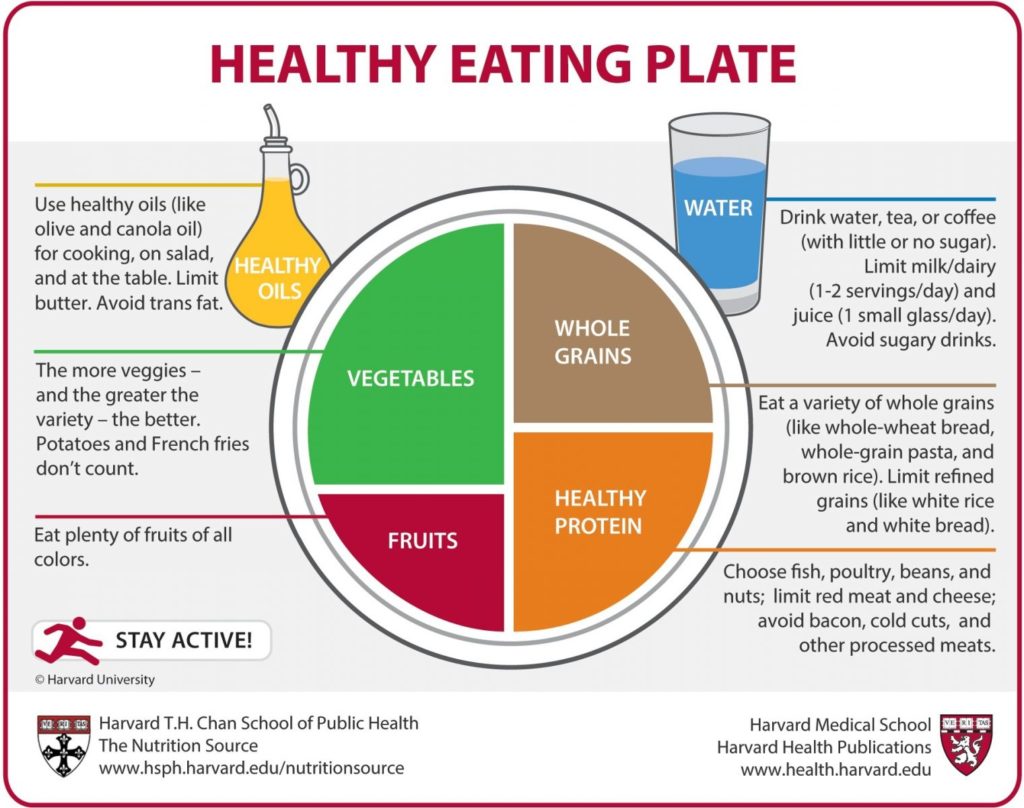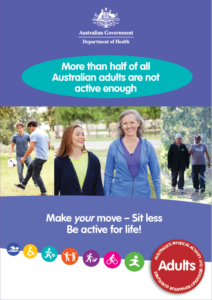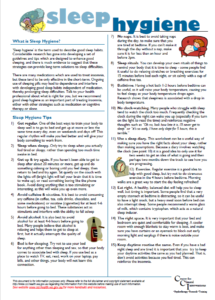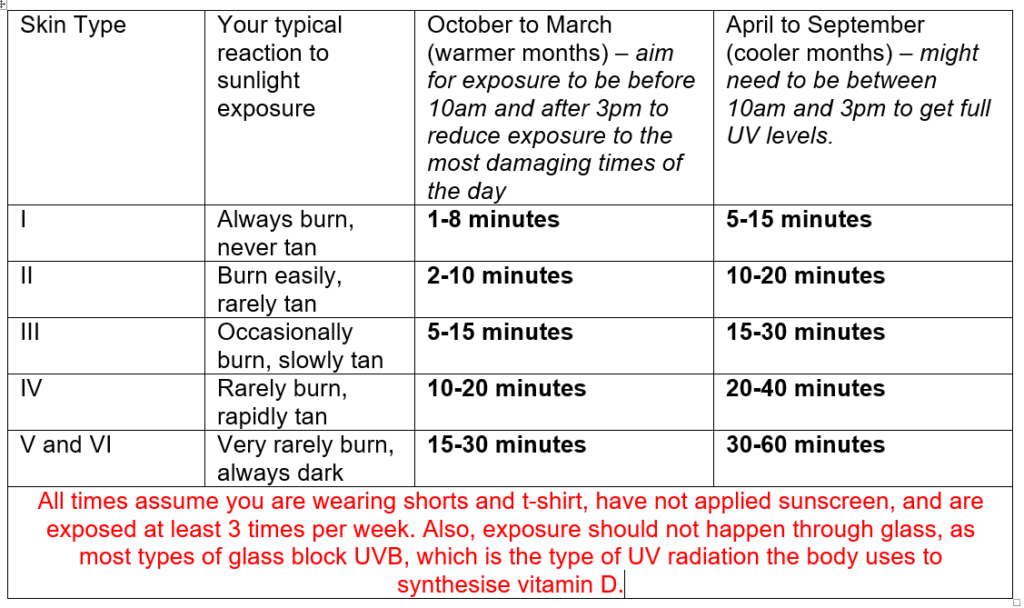
Mental ill health is common.
Around 50% of us will experience some kind of mental health problem during our lives, the most common types of problems being depression or anxiety.
Whilst many people are aware that medications and therapy can be used to treat mental health problems, fewer people are aware that we can use common lifestyle changes to improve our mental health.
In this post, I outline 4 lifestyle modifications you can make, that have been linked to improvements in mental health. These are changes you can start making now, with further assistance from professionals if required.
Nutrition
I grew up with the phrase “You are what you eat”. Which, given my childhood would technically make me a Vegemite sandwich.
More abstractly though, the phrase captures what we increasingly know, which is that what we eat plays a big role in how we feel.
The field of Nutritional Psychiatry looks at the impact of our diet on our mental health. Whilst a very young field, the research in the area is yielding specific recommendations about how to eat in order to improve mental health. The essence of these recommendations is covered neatly in this paper.
Put simply (1) follow ‘traditional’ dietary patterns, such as the Mediterranean, Norwegian, or Japanese diet; (2) increase consumption of fruits, vegetables, legumes, wholegrain cereals, nuts, and seeds; (3) include a high consumption of foods rich in omega-3 polyunsaturated fatty acids; (4) replace unhealthy foods with wholesome nutritious foods; (5) limit your intake of processed-foods, ‘fast’ foods, commercial bakery goods, and sweets.

There are a number of ‘cool’ mechanisms through which diet is hypothesised to influence our mental mental health. These include nutritional deficiencies, the neurological impact of gut disorders like celiac disease or IBS, the role of the gut microbiome (gut bacteria), systemic inflammation, and more. If you find this topic fascinating, start here.
Diet can be challenging to modify, so if you are confused by the recommendations, consider consulting with a dietician.
Physical activity
Unless you’ve been hiding under a rock (I fully support hiding under a rock), you’ll no doubt have been exposed to public health messages telling you to exercise regularly.
Regular exercise reduces the risk of many illnesses: heart and lung disease, high blood pressure, diabetes, obesity, cancer, dementia, and more.
Regular exercise is also recommended as part of the treatment and rehabilitation process in many illnesses.
A review back in 2015 indicated strong evidence for aerobic interventions on depressive symptoms in individuals with a psychiatric illness. They concluded:
“Few interventions exist whereby patients can hope to achieve improvements in both psychiatric symptoms and physical health simultaneously without significant risks of adverse effects. Physical activity offers substantial promise for improving outcomes for people living with mental illness…..”
Exercise has a number of benefits for the brain:
- it increases feel good chemicals like endorphins and serotonin.
- it improves memory through increasing the size of the hippocampus
- it reduces inflammation which is increasingly thought to play a role in mental illness
- it increases oxygen and blood flow to the brain
- check out PsyBlog’s list of brain benefits of exercise
So how much should you get? Well this is a kinda challenging question, given the many different types of activities that can count for exercise.
Aim for 30 minutes of moderate aerobic exercise (i.e. light sweat) most days of the week, 150 minutes in total across the week. Consult this glossy pamphlet for more information.
Sleep
I love sleep and I am really good at it – an expert I reckon.
I do know however, that for others, sleep is a real problem – they can’t get to sleep, have early awakenings, report nonrefreshing sleep.
The relationship between sleep and mental health is a bi-directional one. Poor sleep can lead to mental health problems, whilst mental health problems can also inhibit good sleep.
Our emotional world seems particularly vulnerable to changes in our sleep.
In terms of improving your sleep, the primary starting point is good sleep hygiene. ‘Sleep hygiene’ refers not to how clean you are, but instead to what extent you engage in habits and practices that promote high quality sleep. Start with healthdirect’s ‘10 tips for healthy sleep‘.
The CCI’s sleep hygiene handout isn’t bad either.
If these strategies don’t help, then it is wise to see a professional, as there are effective interventions for a variety of sleep problems.
In this space, Flinders University has actually some of the best sleep researchers in the country. Try the Sleep Research Laboratory, or the Psychology Department Sleep Clinic.
Vitamin D
Vitamin D is one of the many nutrients our bodies need to stay healthy. We get vitamin D through exposure to sunlight (i.e. UV radiation). I’ve written previously about how much sunlight exposure you need to get in order to maintain appropriate D levels. It is a function of both skin type and time of year. During these warmer months, its between 1-30 minutes, 3 times a week, out of the hottest times. These numbers increase as the weather gets cooler.
A review published in 2013 in the British Journal of Psychiatry concluded that “low vitamin D concentration is associated with depression” but suggested further trials to determine if low vitamin D concentration causes depression. The jury is still out on whether it does. It is a plausible relationship however, because vitamin D is “involved in numerous brain processes”.
You can speak to your doctor if you are concerned that your vitamin D levels are low, as low levels can have other health implications other than mental health. I suggest reading this article first in making that decision. Getting safe levels of sun exposure however is something that you can start immediately. In addition to my article on sun exposure times, there is this one, or this paper that is more detailed.
Making lifestyle changes
Whilst the ingredients for a healthy lifestyle are relatively easy to understand, they can be challenging to implement. It can be challenging to change old habits, or install new ones.
The truth is, the things that often derail our healthy intentions (e.g. chocolate, fatty/salty/processed foods, gaming, internet, social media, drugs and alcohol, partying) are very rewarding in the short-term, whereas the benefits of making healthy lifestyle changes sometimes aren’t evident for a few weeks or months.
This is even more noticeable when we are struggling with negative emotions such as anxiety, stress, or distress. We more quickly reach for those things that bring us immediate emotional relief, even if we know they are not the things that will bring us lasting emotional relief.
This means committing to making healthy lifestyle changes has to be a very conscious and deliberate effort.
Here are 9 ways to make your lifestyle change intentions more deliberate:
- Understand clearly your motivation for making the change. Why is it you want to change? What benefits are you hoping for? Without a clear motivation, you will quickly lapse.
- Make a plan including describing the behaviour change clearly, when you are going to do, how often, what time of the day, etc etc. The more detail you provide, the easier it is to implement.
- Measure outcomes. If you are changing your behaviour to feel better, remember to record how you are feeling during the change, to see if it is working.
- Start small and change one behavior at a time. Don’t try to change everything at once or make massive changes. Start with changes you feel confident you can make (e.g. 2 walks a week, or replacing afternoon snacks with nuts/fruit). When you’ve conquered one change, move to the next.
- Set up triggers. Use your mobile phone and inbuilt calendar/notifications to send you reminders of when you should be engaging in a new healthy behaviour. This might be an alarm for your twice weekly walk, or a reminder before dinner-time to select certain foods.
- Involve a buddy. Get a friend, loved on, or family member to assist you with the changes. They might make the same changes (e.g. become gym buddies) or agree to hassle you (in a friendly way) to stick with your program.
- Ask for support. You aren’t on your own. In each of the lifestyle changes above, there are people you can talk to for assistance. Professionals can help with customising the change to your unique circumstances, as well as overcoming common obstacles.
- Stick with the change for a decent period of time. Don’t test your new diet for just a week. These lifestyle changes require a decent testing period to determine if they are working. I consider 2-3 months a more appropriate trial length (assuming no ill effects).
- Reflect and retry if it doesn’t go well. You may not get it right the first time. If you fail, don’t fret. Take some time to reflect on what happened and have another crack.
I’ll be looking more at the process of behaviour change when the Mental Fitness Blog launches (stay tuned).
Final thoughts
Working on your mental health is not just about taking a medication, or chatting with a therapist.
In fact, there are things you can start right now in terms of your diet, physical activity, and sleep that will have a positive impact on your mental health.
This blog post was intended to give you some starting points for these lifestyle changes.
If you’d like to know more, contact me and let me know the topics you’d like me to expand on.




